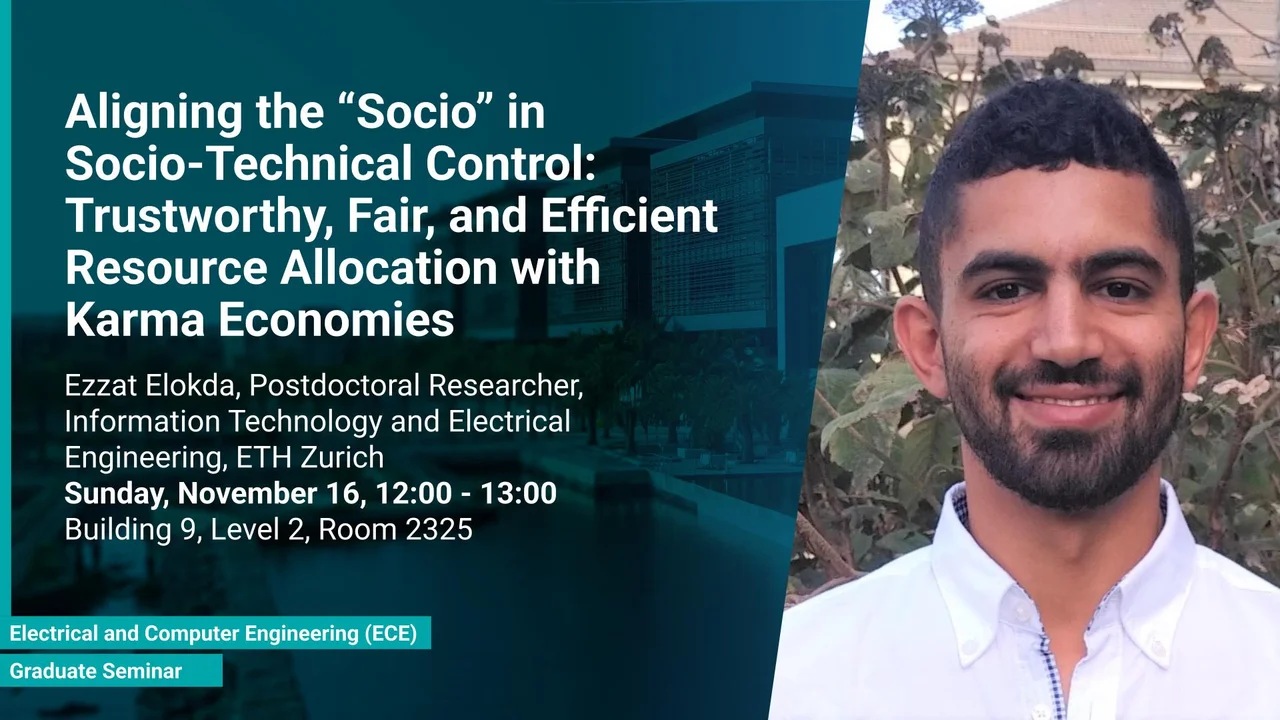
Aligning the “Socio” in Socio-Technical Control: Trustworthy, Fair, and Efficient Resource Allocation with Karma Economies
This talk introduces karma economies, a novel class of non-monetary mechanisms that leverage the repeated and dynamic nature of many socio-technical resources to allocate them in a trustworthy, fair, and efficient manner.
Overview
Control systems will play a pivotal role in addressing future societal challenges, including the pressing clean energy transition. At the heart of these challenges is the trustworthy, fair, and efficient allocation of scarce public resources, e.g., renewable energy, transportation, data, and computation, etc., for which status-quo monetary mechanisms have faced controversy and public dismay. This talk introduces karma economies, a novel class of non-monetary mechanisms that leverage the repeated and dynamic nature of many socio-technical resources to allocate them in a trustworthy, fair, and efficient manner. Karma is a non-tradable token used to bid for resources repeatedly, flowing from resource gainers to yielders in a closed and indefinitely sustainable cycle. This design encourages truthful bidding according to private needs, as participants effectively “play against their future selves.” We present a comprehensive theory of karma economies spanning game-theoretic modelling; fairness and efficiency guarantees rooted in social choice theory; applications in transportation; and behavioral experimental validation. We also outline a vision for a sustainable smart grid powered by karma.
Presenters
Ezzat Elokda, Postdoctoral Researcher, Information Technology and Electrical Engineering, ETH Zurich
Brief Biography
Ezzat Elokda recently defended his PhD thesis under the supervision of Prof. Dr. Florian Dörfler (Automatic Control Lab) and Prof. Dr. Emilio Frazzoli (Institute for Dynamic Systems & Control) at ETH Zurich. His research focuses on aligning intelligent socio-technical systems with societal objectives, combining techniques from control theory, game theory and welfare economics. He received his B.ASc. in Mechatronics Engineering at the University of Waterloo in 2014, and his M.Sc. in Robotics, Systems & Control at ETH Zurich in 2020. From 2014-2018, he held various industrial control positions. He is recipient of the IFAC CPHS Young Author Award (2024) and the ETH Medal for his master’s thesis (2021).